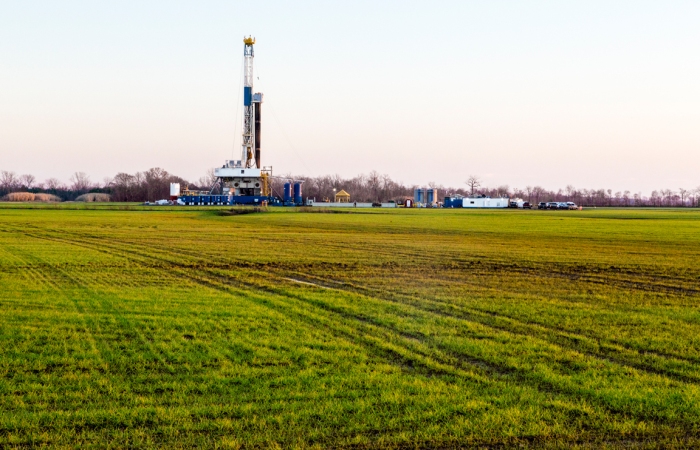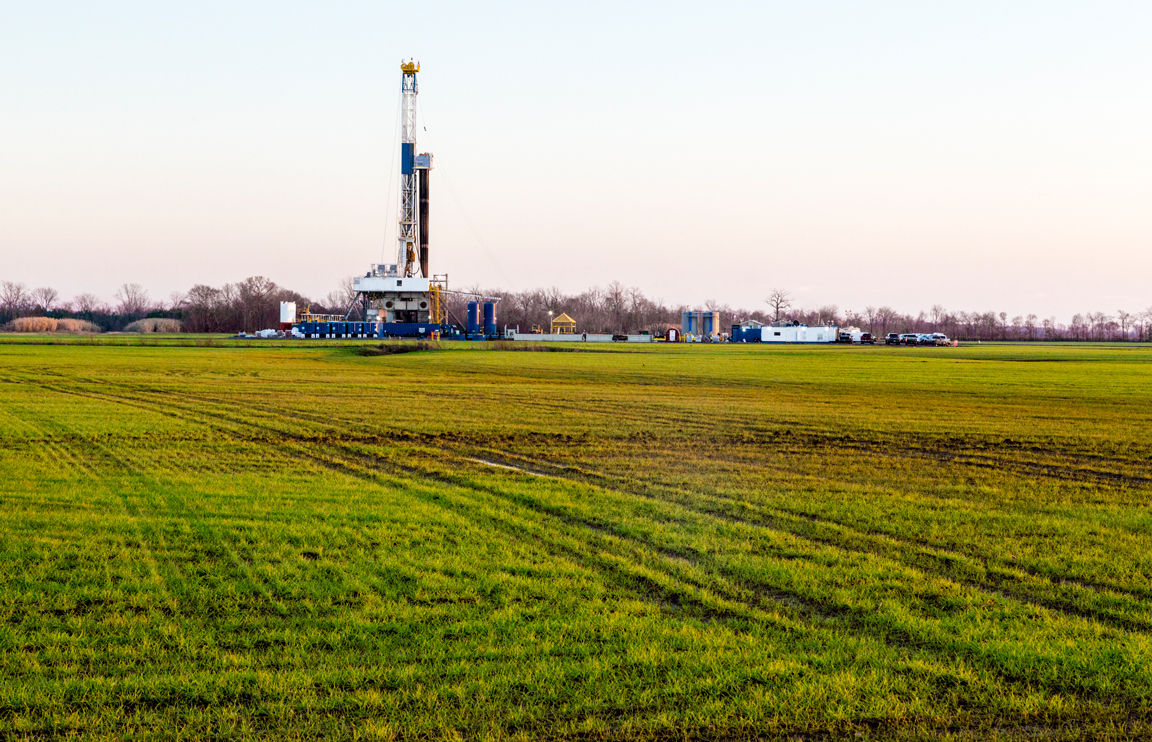
Photo courtesy of Daniel Foster
The practice of hydraulic fracturing, known colloquially as “fracking,” is too often the victim of unwarranted bad press. Fracking is the practice of pumping a liquid solution deep below earth’s surface in order to draw out fossil fuels for extraction. Many people are opposed to the practice, claiming that it contaminates drinking water and causes earthquakes, among other things. A look at the facts shows these alleged fracking evils to be non-existent or negligible. So why the continued protest? The problem lies in the worldview of today’s environmentalists, who, despite their good intentions, are inflexible, dogmatic, and ultimately opposed to progress.
Foremost among environmentalists’ concerns with fracking is the fear that fracking sites contaminate nearby supplies of drinking water. Fracking fluids that are injected into the earth contain additives that environmentalists claim end up seeping into local supplies of drinking water. This is a fear that reveals an unwillingness to dig deeper into the issue. First of all, fracking wells plunge on average 7,500 feet below the surface — this depth is thousands of feet below aquifers that provide drinking water. Secondly, the chemical content of fracking fluid is not particularly dangerous. The fluid consists of 99 percent sand and water. Keep in mind that fracking is primarily a physical process by which rock formations are loosened through intense water pressure. The remaining one percent of fracking fluid consists of chemical additives that are used to lubricate the process, as well as to provide some chemical assistance to the overall erosive effect.
The real kicker for people who think these chemicals are dangerous comes from the Environmental Protection Agency. The agency conducted a study in 2004 that focused exclusively on the safety of fracking. This study found no compelling evidence that the chemical additives in fracking fluid were inherently dangerous, nor did they find a single instance of groundwater contamination as a result of fracking. Only recently has the EPA renewed its search for risks associated with fracking with a new study starting in a few counties in Wyoming. Fracking practices have not changed significantly in the last few years — no new risks have emerged. The likely cause for the renewed search is increased political pressure and public hype, not any legitimate cause for alarm.
Does fracking cause earthquakes? There are, undeniably, confirmed reports of increased seismic activity around some fracking sites. However, we cannot allow media coverage of a few of these events to lead us to believe that they are widespread. The miniature earthquakes attributed to the fracking process are actually caused by a disposal practice by which water left over from fracking is injected deep into an underground well. There are many other ways of disposing of fracking wastewater — the injection method is one among many and is not found at all fracking sites in the United States. Further, there have only been eight documented cases of increased seismic activity due to wastewater injection. To put these incidents in perspective, there are more than 30,000 wastewater injection sites in the United States. If environmentalists are concerned about earthquakes, they ought to turn their attention to geothermal energy, which has a far worse track record of shaking up nearby communities.
If the arguments against fracking are moot, then why the persistent outrage? Opponents of fracking are simply unaware of the facts. Most of them are smart people who have probably heard something along the lines of what I’ve said in the preceding paragraphs. Their fault lies in an ill-placed conviction, an entrenched commitment to the basic principle that fossil fuels are necessarily bad. Environmentalists see themselves as stewards of progress. They think they are speeding an inevitable eclipse of draconian fossil fuels that will bring about an enlightened order of clean, renewable energy. This view is, needless to say, oversimplified. People viewing the world through this perspective miss the many benefits that fossil fuels have to offer. It is true that fossil fuels are a finite resource that will eventually become exhausted. But denying their usefulness now accomplishes nothing and does not bring us any closer to the green future to which environmentalists are so committed.
